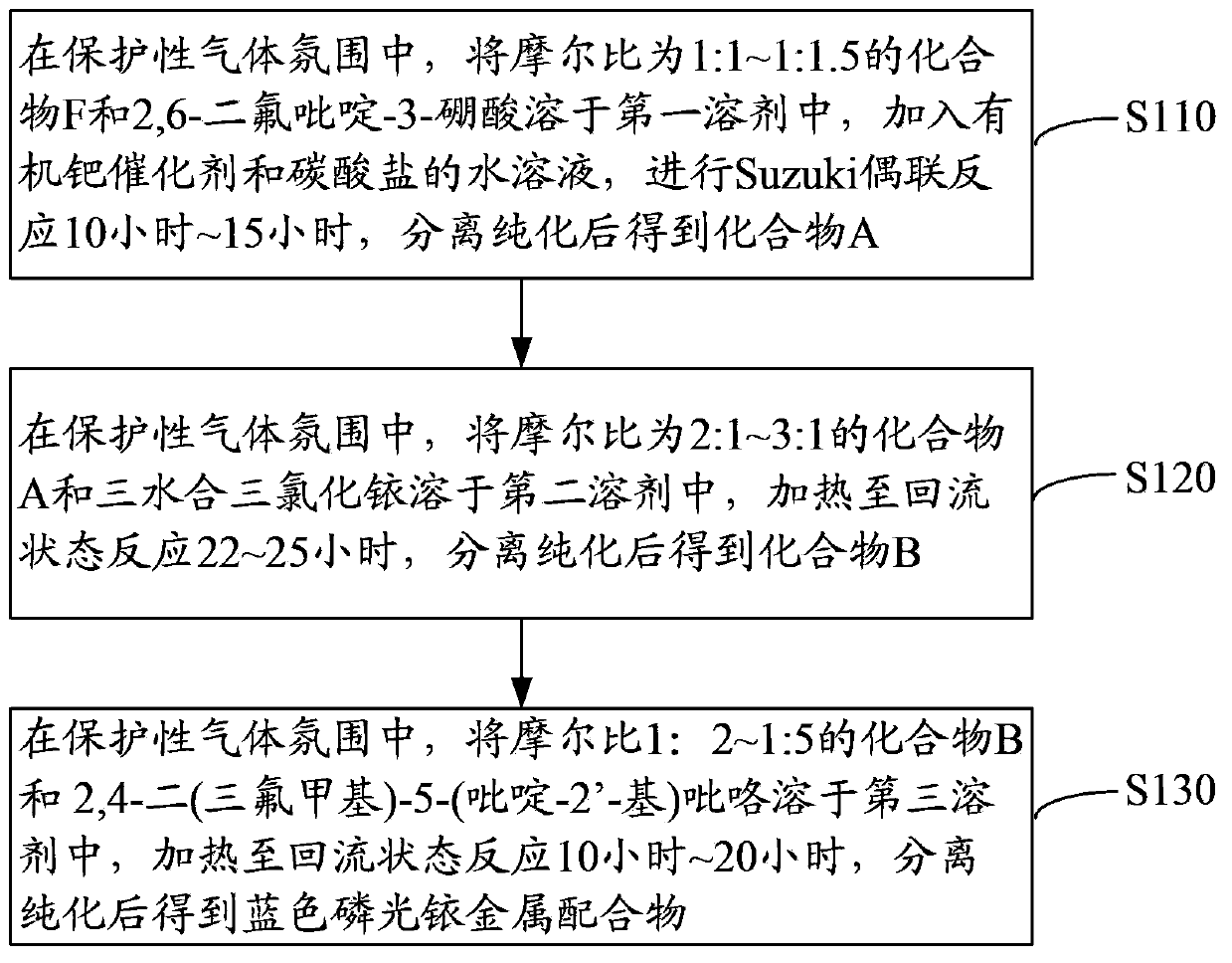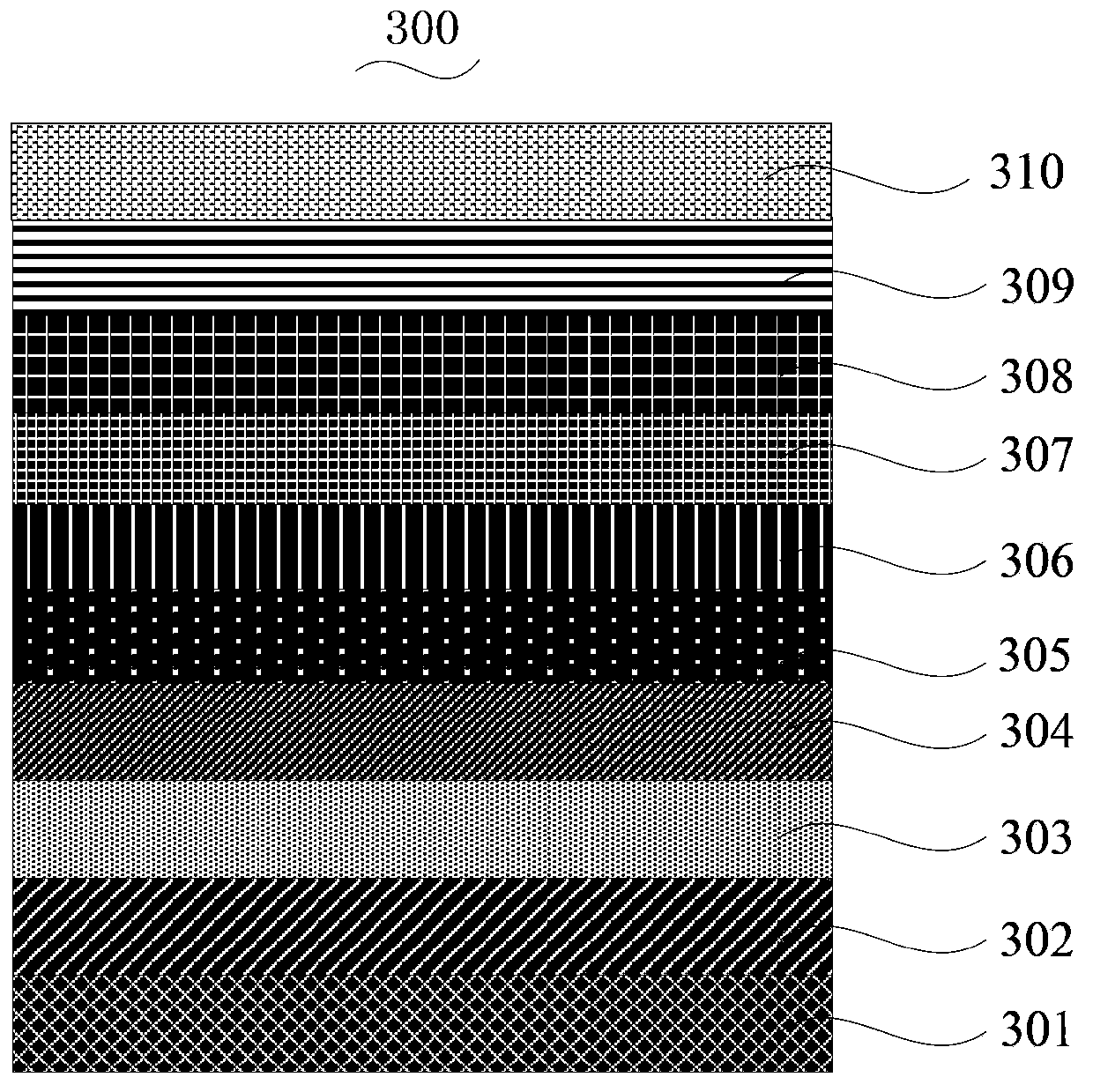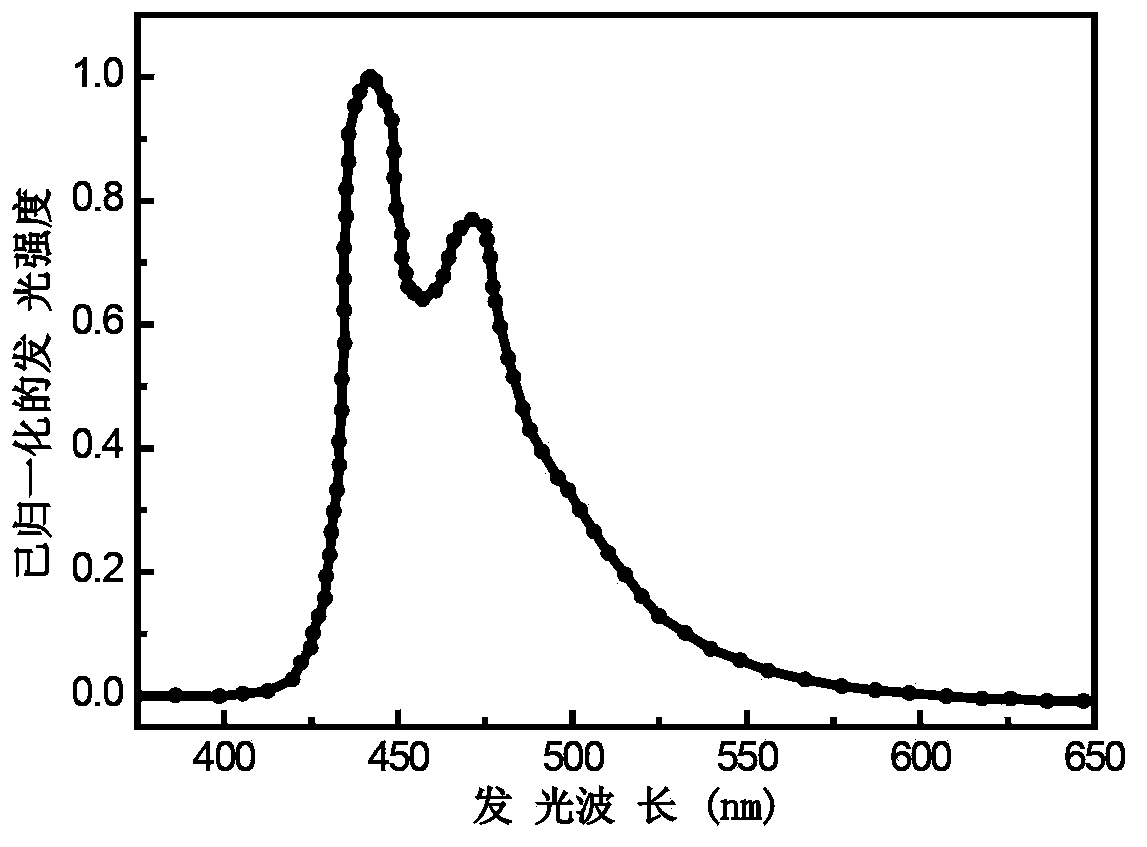Blue phosphorescence material iridium metal complex, preparation method and organic electroluminescent device
A technology of iridium metal complexes and blue phosphorescence, which is applied in luminescent materials, electrical solid devices, organic chemistry, etc., and can solve the problems of lagging development and poor luminous performance of light-emitting devices
- Summary
- Abstract
- Description
- Claims
- Application Information
AI Technical Summary
Problems solved by technology
Method used
Image
Examples
preparation example Construction
[0039] see figure 1 , the preparation method of the blue phosphorescence iridium metal complex of an embodiment, comprises the steps:
[0040]Step S110: in a protective gas atmosphere, dissolve compound F and 2,6-difluoropyridine-3-boronic acid in a molar ratio of 1:1 to 1:1.5 in the first solvent, and add an organopalladium catalyst and carbonic acid The aqueous salt solution was subjected to Suzuki coupling reaction for 10 hours to 15 hours, and compound A was obtained after separation and purification, and the structural formula of compound F was The structural formula of compound A is Wherein, R is an alkoxy group having 1 to 20 carbon atoms.
[0041] The protective gas is argon, helium or neon.
[0042] The first solvent is toluene or tetrahydrofuran (THF). The amount of the first solvent is suitable to fully dissolve the compound F and 2,6-difluoropyridine-3-boronic acid. Preferably, the concentration of compound F in the first solvent is 0.06-0.2 mol / L. Preferab...
Embodiment 1
[0071] Blue phosphorescent bis(2-(2',6'-difluoropyridin-3'-yl)-5-methoxypyrimidine-N,C 4 Synthesis of ')(2-pyridinecarbonyl)iridium complexes
[0072] Blue phosphorescent bis(2-(2',6'-difluoropyridin-3'-yl)-5-methoxypyrimidine-N,C 4 ') (2-pyridinecarbonyl) iridium complexes have the following structural formula:
[0073]
[0074] (1) Synthesis of 2-(2',6'-difluoropyridin-3'-yl)-5-methoxypyrimidine
[0075]
[0076] Under nitrogen protection, 1.89g (10mmol) 2-bromo-5-methoxypyrimidine, 1.91g (12mmol) 2,6-difluoropyridine-3-boronic acid and 0.58g (0.5mmol) tetrakis (triphenylphosphine) Palladium was dissolved in 35 mL of toluene, and then 15 mL of an aqueous solution containing 2.76 g (20 mmol) of potassium carbonate was added dropwise to the reaction system. Heated and stirred at 90°C for 10 hours. After the reaction solution was cooled to room temperature, it was extracted with dichloromethane, separated, washed with water until neutral, and dried over anhydrous magn...
Embodiment 2
[0098] Blue phosphorescent bis(2-(2',6'-difluoropyridin-3'-yl)-4-hexyloxypyrimidine-N,C 4 Synthesis of ')(2-pyridinecarbonyl)iridium complexes
[0099] Blue phosphorescent bis(2-(2',6'-difluoropyridin-3'-yl)-4-hexyloxypyrimidine-N,C 4 ') (2-pyridinecarbonyl) iridium complexes have the following structural formula:
[0100]
[0101] (1) Synthesis of 2-(2',6'-difluoropyridin-3'-yl)-4-hexyloxypyrimidine
[0102]
[0103] Under nitrogen protection, 1.30g (5mmol) 2-bromo-4-hexyloxypyrimidine, 0.79g (5mmol) 2,6-difluoropyridine-3-boronic acid and 0.14g (0.2mmol) dichlorobis(triphenyl Phosphorus) palladium was dissolved in 35mL of DMF, and then 15mL of an aqueous solution containing 2.07g (15mmol) of potassium carbonate was added dropwise to the reaction system. Stir the reaction under heating to 80°C for 12 hours. After the reaction solution was cooled to room temperature, it was extracted with dichloromethane, separated, washed with water until neutral, and dried over anh...
PUM
| Property | Measurement | Unit |
|---|---|---|
| Thickness | aaaaa | aaaaa |
| Maximum lumen efficiency | aaaaa | aaaaa |
Abstract
Description
Claims
Application Information
 Login to View More
Login to View More - R&D
- Intellectual Property
- Life Sciences
- Materials
- Tech Scout
- Unparalleled Data Quality
- Higher Quality Content
- 60% Fewer Hallucinations
Browse by: Latest US Patents, China's latest patents, Technical Efficacy Thesaurus, Application Domain, Technology Topic, Popular Technical Reports.
© 2025 PatSnap. All rights reserved.Legal|Privacy policy|Modern Slavery Act Transparency Statement|Sitemap|About US| Contact US: help@patsnap.com



